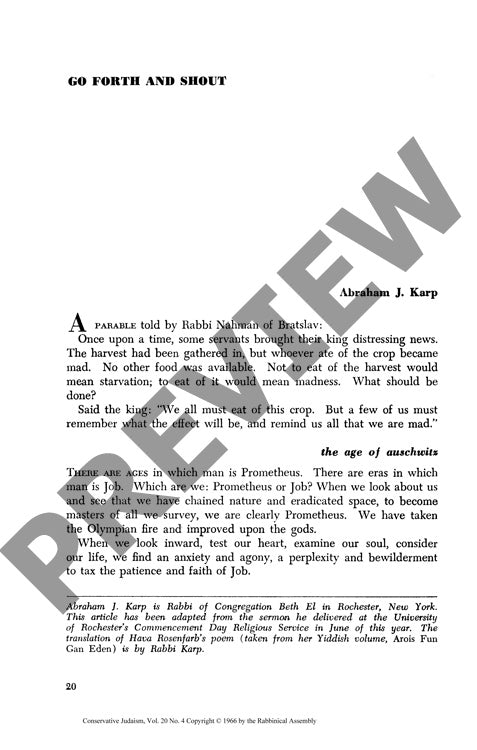Go Forth and Shout
Couldn't load pickup availability
In the shadow of the Holocaust, traditional conceptions of divine presence crumbled, leaving survivors and theologians grappling with fundamental questions about God, meaning, and moral responsibility. Through analysis of Holocaust survivor testimonies, including Elie Wiesel's accounts of Auschwitz and writings from the Warsaw Ghetto, a pattern emerges: meaning persists not through passive faith but through active moral engagement with human suffering. Using hermeneutical analysis of theological narratives, survivor poetry, and Viktor Frankl's logotherapy, this research examines how individuals reconstruct meaning in the face of unprecedented atrocity. Rabbinical interpretations and Jewish theological frameworks provide context for addressing theodicy questions raised by the Holocaust. The findings reveal that while historical atrocities have challenged conventional theological understanding, God's presence manifests through human responses to calls for justice, particularly regarding economic exploitation, warfare, and social inequality. What emerges is a concept of "responsive faith" - one that transforms theological crisis into moral imperative by hearing divine calls within human anguish and answering through courageous action.

More Information
-
Physical Description
-
Publication Information
Published 1966
ISBN
-
Publication Credits
Abraham Karp

